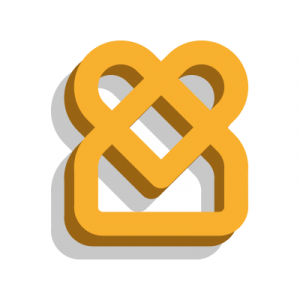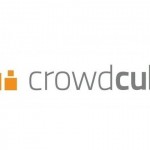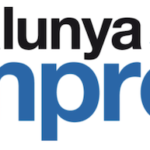Barcelona and Catalonia are renowned for its powerful life sciences research and the quality of the healthcare system. The country has produced world-leading scientists in the fields of cancer, HIV and other diseases. A powerful research network encouraged and supported by the Government – From 2000 to 2008, public funding of research grew around 10% a year-; a strong presence of pharma industry -50% of all industry in Spain; Barcelona’s capacity to attract international talent, and a dynamic entrepreneurial fabric makes the country and its capital a perfect place for starting a new businesses in healthcare. This rich ecosystem has boosted a lively startup scene in which digital health businesses have flourished.
What is digital health
Digital health is the convergence of the digital revolution with health (Wikipedia). Digitisation has transformed many sectors, ranging from finances and retail to music and communications. However, the digital revolution in health is just at the beginning.
The Barcelona digital health startup scene
In Barcelona, many startups are working on digital solutions to improve the way we get healthcare services. “Barcelona is one of the top five digital health hubs in Europe: a leading healthcare system, easy access to finance, international talent and a strong support by the public sector facilitates the creation of new startups,” says Miguel Ángel Tovar (@blogaceutics), journalist specialised in digital health and business angel. Miguel Ángel thinks that the installation of the European Medicines Agency (EMA) in Barcelona would be a great boost for health startups. The Catalan capital is among the cities that are bidding for it after the Agency is forced to leave London as a result of the Brexit.
According to Barcelona & Catalonia Startup Hub (Generalitat de Catalunya) there are over a hundred startups focused on digital health in Barcelona. Some are recognised internationally and have commercial success, such as Doctoralia, a platform that allows to find doctors and get appointments in 20 countries and it has close to 200 million users a year. Over a year ago the company merged with DocPlanner and they became the leading online platform to search doctors.
Frederich Llordachs, cofounder and Global Business Development Manager of the company, explains what he believes to be the keys of the company’s success: “Ten years ago no one was working in digital health. We saw there was an unfulfilled need and we went for it. We made money from the beginning –thanks to Google Ads- so we didn’t have to rely on external finance and we had complete freedom to run our business. Another key is that we expanded to Latin America where we know the language and the culture”. But implementing such an innovative idea was not easy. “Healthcare is a conservative sector and it has a strict regulation. Many doctors don’t understand that digitisation, which is in all areas of their life, has also entered healthcare,” says Llordachs.
Digital enhancing healthcare
There are other digital health startups born in Barcelona that are being recognised in the international market: Social Diabetes, Psious, Mediktor, Devicare… Others have been created very recently but they are showing great potential. It is the case of Joyners, a startup born at the beginning of 2016 that this year is expected to multiply its revenue by 6 (311.000€ in 2016 versus 1,400,000€ in 2017). Cofounded by three young professionals that had a long experience working in multinationals, Joyners is an online platform that connects caregivers for older people with families that are in need of these services. The company selects experienced caregivers –nurses and social workers- who then enter their profile on the platform and they geolocalize themselves. Workers are marked and get comments by the customers. The company started in Barcelona and they are now in Madrid, Valencia, and Zaragoza. Their plan is to extend its activity to other Spanish cities and to Europe in 2018. “The silver economy had not entered the digital revolution and we thought there was an opportunity for digital services in the market,” says CEO Oriol de Pablos. “We started with 3 people, now we are 11 and we have 304 registered caregivers.” Joyners have had private and public investment and they have been helped by Barcelona Activa and by startup accelerator Conector.
Pharmacelera is another Barcelona startup that thinks big. Founded by two ex-Intel engineers, it focuses on high-performance computing to find molecules that might turn into valuable drugs. The company, founded in 2015 by Enric Gibert and Enric Herrero, has its base in Pier01, an historical building by Port Vell that hosts startups with a technological base. Pharmacelera is being mentored by mVentures, a program by Mobile World Capital Foundation, and it has financial support from private investors (former senior executives from Bayer, Novartis and other pharmas), business angels and public funds. Enric Gibert stresses the “top quality basic research done in Barcelona and the powerful biotech ecosystem” as facilitators of their activity. Gibert, who did his PhD at Universitat Politècnica de Catalunya and studied Business at IESE, thinks that startups are a good way of reverting science into society: “Science needs to go out of universities and benefit society. There are still too many scientists that don’t see it this way.”
If you are on the startup scene you have probably heard of Medtep. The Barcelona startup made the headlines last January when a personal crisis between its two cofounders, Pablo Pantaleoni and Jacob Suñol, made everyone think that it was the end of the company. But Medtep overcame the crisis and it is back to work with a new CEO, Jordi Cabot, and with a handful of valuable members of the old team, including Guillermo Marqueta.
Medtep is a solution that allow doctors to follow patients with an online tool that tracks medication adherence, symptoms, physical activity and other parameters. The solution can be customised for various conditions and it adapts to the patient needs. The doctor can design a personalised Action Plan for each patient. “Our goal is to empower patients and facilitate the doctors’ work. It’s been proved that empowered patient achieve better outcomes and have a better quality of life,” says Cabot. The team is now focused on developing the product with the idea that it becomes agile, easily scalable and flexible to adapt to different types of patients. The company is working with patients with haemophilia, multiple myeloma and they are thinking of exploring mental health. Despite having reduced the team, the company continues to have the support of a major investor fund (Stella Maris, from Mexico). Medtep’s goal is to become a valuable provider for healthcare organisations in the near future.
So, as we’ve seen, Barcelona’s digital health scene is booming. The startups featured on the article are just a small sample of the great amount of talent hidden in the city.











Leave a Reply